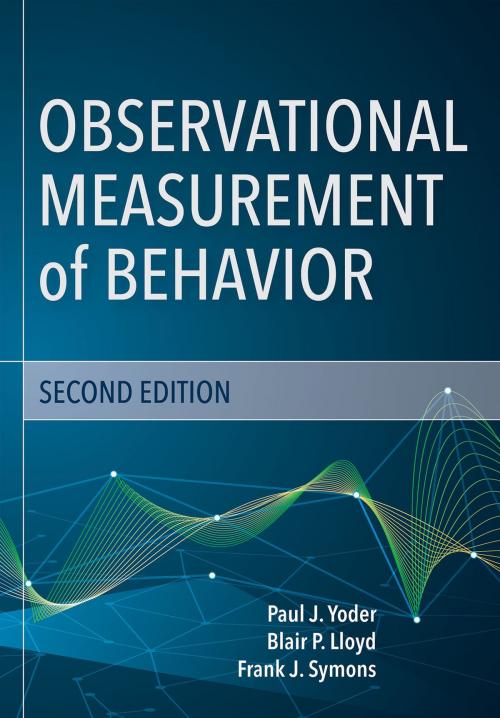Observational Measurement of Behavior
Nonfiction, Health & Well Being, Psychology, Testing & Measurement, Reference & Language, Education & Teaching, Educational Theory, Research| Author: | Paul J. Yoder, M.Ed., Ph.D., Dr. Frank J. Symons, M.Ed., Ph.D., Blair Lloyd, Ph.D., BCBA-D | ISBN: | 9781681252483 |
| Publisher: | Brookes Publishing | Publication: | April 26, 2018 |
| Imprint: | Brookes Publishing | Language: | English |
| Author: | Paul J. Yoder, M.Ed., Ph.D., Dr. Frank J. Symons, M.Ed., Ph.D., Blair Lloyd, Ph.D., BCBA-D |
| ISBN: | 9781681252483 |
| Publisher: | Brookes Publishing |
| Publication: | April 26, 2018 |
| Imprint: | Brookes Publishing |
| Language: | English |
This book is a comprehensive textbook designed to introduce graduate students to research methods and techniques
used in observational measurement of behavior, along with the theoretical principles underlying these methods and
techniques. The aspects of observational measurement addressed are highly relevant to special education,
communication sciences, psychology, social work, and related fields. Chapters 1–8 discuss foundational topics in
observational measurement of behavior: systematic observation, validity and reliability, measurement theory, the
development of coding manuals, coding, common metrics of observational variables, observer training, interobserver
reliability, and more. Chapters 9–11 address advanced topics: sequential analysis, research questions involving
sequential associations, and generalizability theory. Chapter 12 is a “‘wrap‐up” chapter summarizing best practices for
observational measurement.
Each chapter begins with an overview of the topics covered and ends with the authors’ conclusions and practical
recommendations regarding aspects of observational measurement. Throughout, the authors provide real‐world
examples based on their extensive experience studying communication behaviors. Recommended methods are
discussed in relation to currently available observational software. Definitions of key terms are prominently featured in
the text and compiled in the Glossary. The online companion materials include exercises and assignments that provide
opportunities for readers to apply the principles and practices discussed throughout the book; these comprehensive
documents are an excellent resource for course instructors.
This book is a comprehensive textbook designed to introduce graduate students to research methods and techniques
used in observational measurement of behavior, along with the theoretical principles underlying these methods and
techniques. The aspects of observational measurement addressed are highly relevant to special education,
communication sciences, psychology, social work, and related fields. Chapters 1–8 discuss foundational topics in
observational measurement of behavior: systematic observation, validity and reliability, measurement theory, the
development of coding manuals, coding, common metrics of observational variables, observer training, interobserver
reliability, and more. Chapters 9–11 address advanced topics: sequential analysis, research questions involving
sequential associations, and generalizability theory. Chapter 12 is a “‘wrap‐up” chapter summarizing best practices for
observational measurement.
Each chapter begins with an overview of the topics covered and ends with the authors’ conclusions and practical
recommendations regarding aspects of observational measurement. Throughout, the authors provide real‐world
examples based on their extensive experience studying communication behaviors. Recommended methods are
discussed in relation to currently available observational software. Definitions of key terms are prominently featured in
the text and compiled in the Glossary. The online companion materials include exercises and assignments that provide
opportunities for readers to apply the principles and practices discussed throughout the book; these comprehensive
documents are an excellent resource for course instructors.















